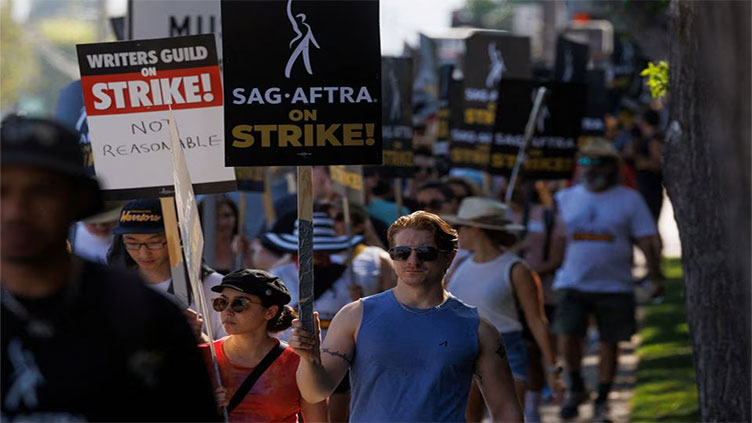Striking Hollywood writers, studios to return to bargaining table

Entertainment
Negotiators for striking Hollywood writers and studios will return to bargaining table on Friday.
LOS ANGELES (Reuters) - Negotiators for striking Hollywood writers and the major studios will return to the bargaining table on Friday, the Writers Guild of America (WGA) said as the strike marked more than 100 days.
The Alliance of Motion Picture and Television Producers, the group representing Walt Disney, Netflix, Warner Bros Discovery and other studios, is expected to provide responses to proposals from the WGA, the union said in a statement on Thursday.
The strike began on May 2 after talks between the WGA and the major studios reached an impasse over compensation, minimum staffing of writers' rooms and residual payments in the streaming era, among other issues.
Writers also sought to regulate the use of artificial intelligence, which they fear could replace their creative input.
Studio executives have signaled their desire for a timely resolution to the labor unrest during recent earnings calls.
Both sides met on Aug. 4 to discuss resuming talks and the issues each intended to bring to the bargaining table. But the WGA put out a statement afterwards critical of the studios, a sign that talks were strained.
Disney Chief Executive Bob Iger on Wednesday extended an olive branch to Hollywood writers and actors, citing his “deep respect” for creative professionals.
"Nothing is more important to this company than its relationships with the creative," Iger said. "I have deep respect and appreciation for all those who are vital to the extraordinary creative engine that drives this company and our industry."
Iger, who has a reputation as talent-friendly, angered striking Hollywood workers last month when he said that their demands were "not realistic."
The strike by about 11,500 writers has led to late-night shows cancelling new episodes, disrupted most production for the fall TV season and halted work on big-budget movies.
The 160,000-member Screen Actors Guild (SAG) went on strike on July 14 also over pay and artificial intelligence, for the first dual strike since 1960.

